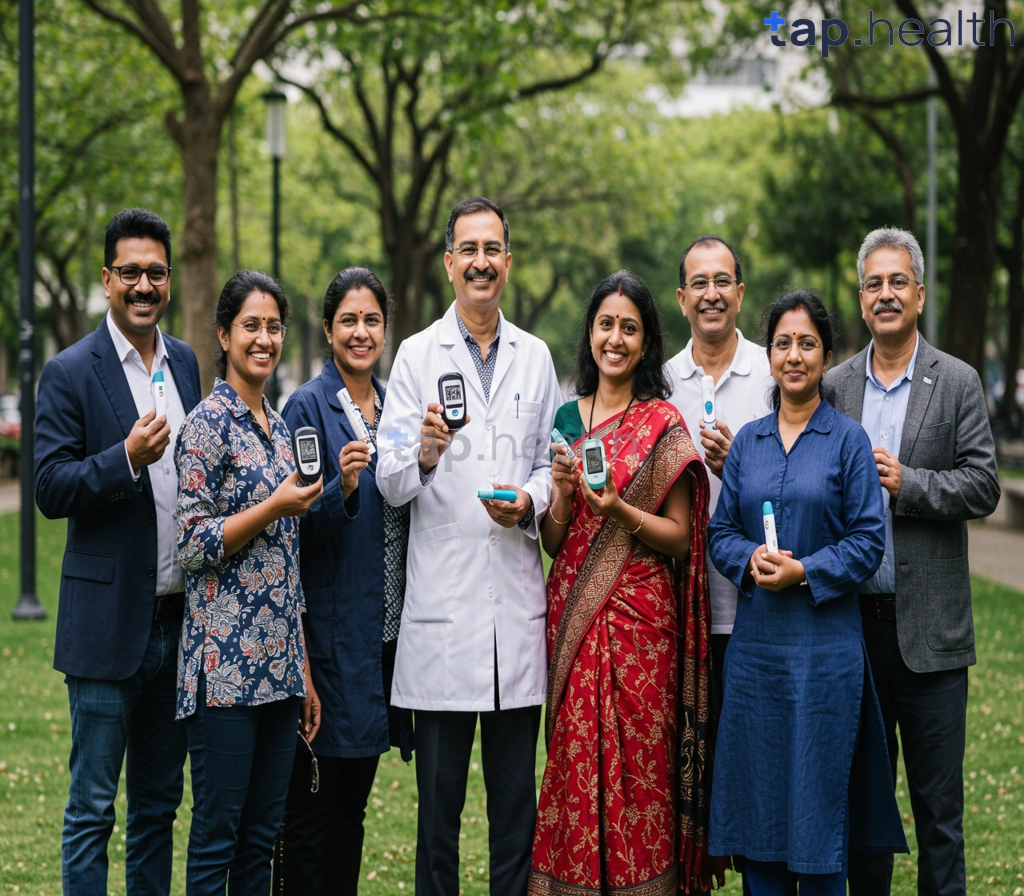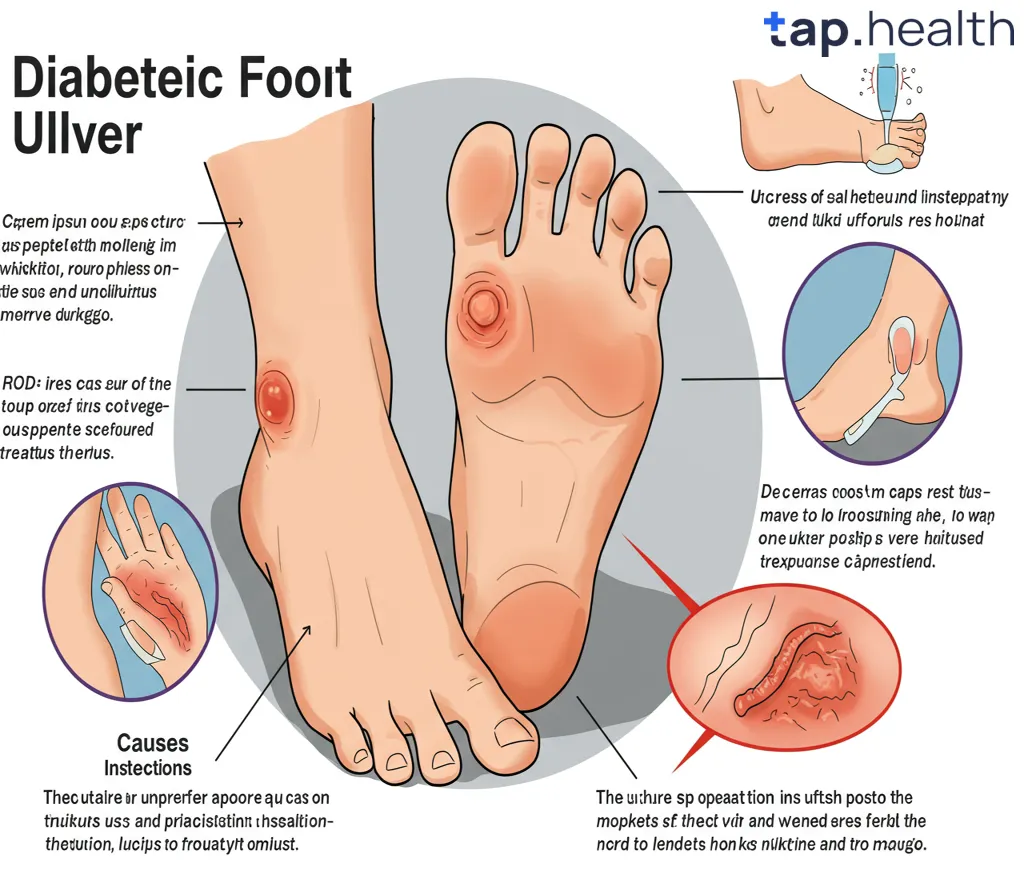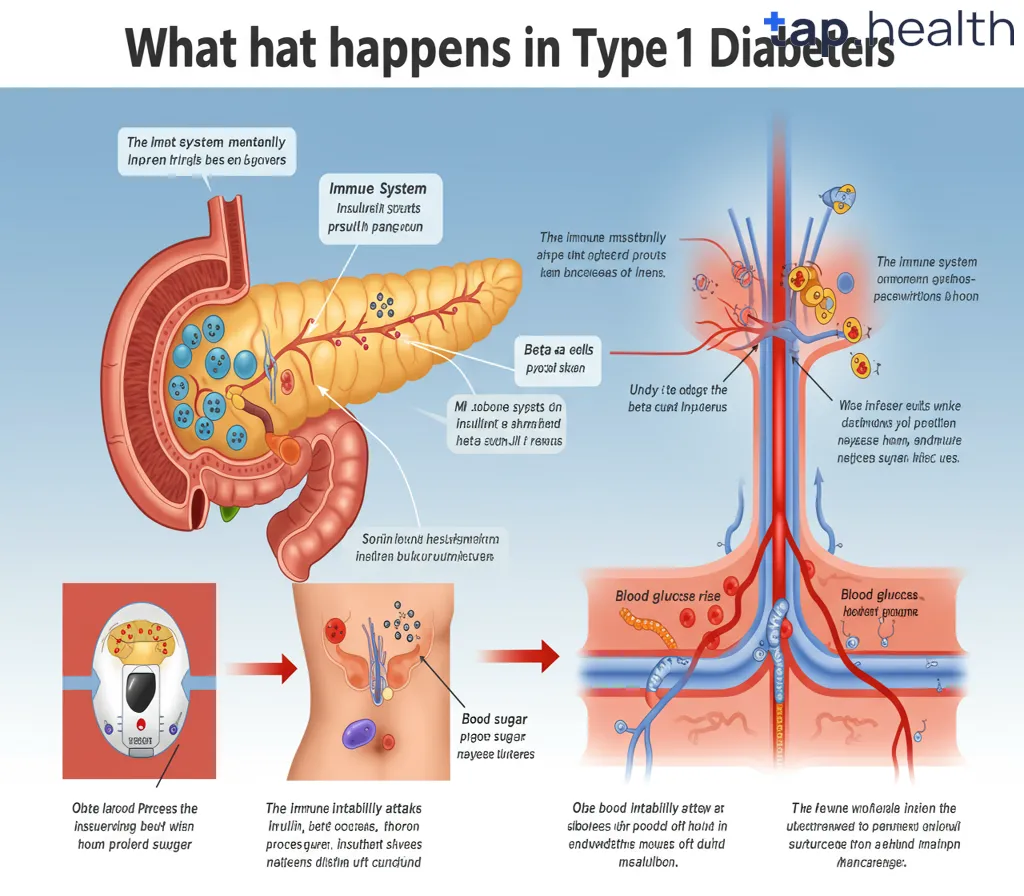Table of Contents
- AI in Diabetes Drug Discovery: A New Era of Treatments?
- How AI Accelerates Diabetes Drug Development and Innovation
- Top 5 Ways AI is Revolutionizing Diabetes Treatment
- AI-Powered Drug Discovery: Promising Solutions for Diabetes
- Understanding the Role of AI in the Future of Diabetes Care
- Frequently Asked Questions
- References
The quest for better diabetes treatments is constantly evolving, and now, a powerful new ally has joined the fight: artificial intelligence. AI revolutionizes diabetes drug discovery, offering unprecedented speed and accuracy in identifying promising drug candidates. Imagine a future with more effective, personalized treatments, and fewer side effects – that future is closer than you think. This blog post explores the exciting breakthroughs AI is driving in diabetes research, highlighting the innovative approaches and promising new therapies on the horizon. Get ready to discover how this technological revolution is changing the landscape of diabetes care.
AI in Diabetes Drug Discovery: A New Era of Treatments?
The global fight against diabetes is intensifying, with a significant portion of the affected population, 61% falling between the ages of 20 and 64, according to the IDF Diabetes Atlas. This highlights the urgent need for innovative treatment strategies, particularly in regions like India and other tropical countries where diabetes prevalence is high. The good news is that Artificial Intelligence is emerging as a powerful tool in accelerating diabetes drug discovery.
AI’s Role in Revolutionizing Diabetes Treatment
AI algorithms are proving invaluable in analyzing vast datasets of genomic information, clinical trial results, and patient records to identify potential drug targets and predict drug efficacy. This accelerates the traditionally lengthy and expensive drug development process. For instance, AI can pinpoint specific genetic markers associated with different types of diabetes, leading to the development of personalized therapies tailored to individual patient needs. This is particularly crucial in diverse populations found across India and tropical countries, where genetic predispositions to diabetes can vary significantly. Furthermore, advancements in AI are also impacting how we manage the disease after diagnosis. Learn more about the role of AI in How AI Helps in Monitoring and Managing Diabetes.
Promising Avenues for AI-Driven Diabetes Research
AI is also facilitating the exploration of novel drug mechanisms and repurposing existing drugs for improved diabetes management. Machine learning models can predict the effectiveness of drug combinations and identify potential side effects early in the development process, reducing risks and accelerating time to market. This translates to faster access to potentially life-saving medications for millions affected by diabetes in India and other tropical regions facing unique challenges in healthcare access. The possibilities are vast, and exploring how AI can be used to treat diabetes is crucial. For a detailed overview, see How artificial intelligence technology can be used to treat diabetes?
The Path Forward: Actionable Steps for the Region
Investing in AI-driven research and development, coupled with strengthening healthcare infrastructure and increasing digital literacy, will be crucial in leveraging the full potential of AI in tackling the diabetes epidemic in India and tropical countries. Collaboration between researchers, pharmaceutical companies, and governments is essential to ensure equitable access to these advancements. The future of diabetes management lies in embracing technology and prioritizing accessible, personalized care.
How AI Accelerates Diabetes Drug Development and Innovation
The global burden of diabetes is staggering. The number of people living with this chronic disease skyrocketed from 200 million in 1990 to a staggering 830 million in 2022, according to the World Health Organization (WHO). This dramatic increase underscores the urgent need for innovative treatments, and Artificial Intelligence (AI) is emerging as a game-changer in diabetes drug discovery.
AI’s Role in Faster Drug Development
AI significantly accelerates the drug development process in several ways. Firstly, it can analyze vast datasets of genomic information, clinical trial data, and medical literature far exceeding human capacity, identifying potential drug targets and predicting drug efficacy with unprecedented speed and accuracy. This accelerates the pre-clinical phase, significantly shortening the time to market for new treatments. Secondly, AI-powered tools can optimize drug design, predicting the effectiveness of different molecular structures and minimizing side effects. This leads to the development of more effective and safer medications.
Addressing the Needs of Indian & Tropical Countries
In India and other tropical countries, diabetes prevalence is particularly high, often exacerbated by factors like lifestyle changes and genetic predispositions. AI can help tailor drug development to these specific regional needs by analyzing diverse populations and identifying disease variations. This personalized approach, informed by AI, promises to deliver more effective and accessible diabetes treatments to these regions. AI-driven drug discovery can offer hope for the millions affected by diabetes in India and other tropical countries, offering a pathway to improved health outcomes. Investing in AI-driven research is crucial for improving diabetes management and alleviating the global health crisis. For those already diagnosed, learning how AI can help manage the condition is vital. Check out How You Can Manage Diabetes Well with AI for practical tips and insights. And for those seeking more ambitious goals, discover how AI might even contribute to reversing the effects of diabetes in How AI Can Help You Reverse Diabetes.
Top 5 Ways AI is Revolutionizing Diabetes Treatment
Accelerated Drug Discovery
AI is dramatically speeding up the process of discovering and developing new diabetes drugs. By analyzing vast datasets of molecular structures and biological information, AI algorithms can identify promising drug candidates far more efficiently than traditional methods. This is crucial given that 6.7 million people died from diabetes globally in 2021, highlighting the urgent need for effective treatments. This accelerated pace translates to faster access to potentially life-saving medications, particularly beneficial in resource-constrained regions of India and other tropical countries.
Personalized Treatment Plans
AI-powered systems can analyze individual patient data – including genetic information, lifestyle factors, and medical history – to create highly personalized diabetes management plans. This precision medicine approach allows for more effective treatment tailored to the unique needs of each patient, improving outcomes and reducing complications. This is especially important in diverse populations across India and tropical countries where diabetes manifests differently depending on genetics and lifestyle. The potential for improved lifestyle management is also a key area of focus, as highlighted in How Can New Technological Advances Improve Diabetes Lifestyle?.
Improved Diagnostic Accuracy
AI algorithms are being integrated into diagnostic tools, improving the accuracy and speed of diabetes detection. This early and accurate diagnosis is vital for timely intervention, preventing the progression of the disease and minimizing long-term complications. Early diagnosis is particularly crucial in regions with limited access to advanced healthcare facilities, common in parts of India and many tropical countries. The ability of AI to predict the likelihood of developing diabetes is also a significant advancement, as explored in Can Artificial Intelligence Predict if a Person Has Diabetes?.
Enhanced Monitoring and Management
AI-powered wearable devices and mobile applications can continuously monitor vital health metrics relevant to diabetes management, such as blood glucose levels and activity levels. This constant monitoring allows for proactive adjustments to treatment plans and enables early detection of potential problems. This remote monitoring capability is particularly useful in regions with limited access to frequent in-person checkups, as seen in many parts of India and tropical nations.
Optimizing Insulin Delivery
AI is improving the efficacy and safety of insulin delivery systems. Algorithms can analyze real-time data from glucose monitors to predict and adjust insulin dosages automatically, leading to better glycemic control and reduced risks of hypoglycemia. This technology promises improved quality of life for people with diabetes, particularly in countries where access to advanced insulin delivery systems may be limited. The potential for AI to revolutionize diabetes care in India and across tropical nations is immense, offering hope for improved health outcomes for millions.
AI-Powered Drug Discovery: Promising Solutions for Diabetes
The global fight against diabetes is intensified by a startling statistic: 50% of diabetes cases worldwide remain undiagnosed, according to the International Diabetes Federation. This highlights a critical need for improved diagnostic tools and, crucially, more effective treatments. Fortunately, artificial intelligence (AI) is emerging as a powerful ally in this battle, revolutionizing diabetes drug discovery and offering promising solutions for millions, especially in regions like India and other tropical countries heavily impacted by the disease.
Accelerating Drug Development with AI
AI algorithms are proving invaluable in identifying potential drug candidates, accelerating the traditionally lengthy and expensive drug development process. By analyzing vast datasets of genomic information, clinical trials, and molecular structures, AI can predict the effectiveness and safety of potential therapies with significantly greater speed and accuracy than traditional methods. This is particularly important for diabetes, a complex disease with diverse subtypes and contributing factors. The potential for personalized medicine, tailored to individual genetic profiles and lifestyles, is also significantly enhanced through AI’s analytical capabilities. Understanding the potential impact of diabetes on other health markers is also crucial; for instance, it’s important to be aware of how diabetes might affect things like drug testing, as discussed in Can Diabetes Cause a False Positive Drug Test?.
Addressing Unique Regional Challenges
In India and other tropical countries, factors like lifestyle, diet, and access to healthcare contribute to high diabetes prevalence. AI can help address these specific challenges by enabling the development of drugs targeted at the unique genetic predispositions and environmental factors prevalent in these regions. For example, AI could help identify drugs effective against specific diabetes complications more common in these populations. Furthermore, AI-powered diagnostic tools could improve early detection rates, leading to earlier intervention and better patient outcomes. Alongside medication, appropriate dietary supplementation can play a significant role in diabetes management. Learn more about safe and effective options in Safe and Effective Dietary Supplements for Diabetes Care.
A Promising Future
The integration of AI into diabetes drug discovery signifies a significant step towards a future with more effective and accessible treatments. Early detection and personalized therapies enabled by AI offer hope for improved diabetes management and a better quality of life for countless individuals in India and other tropical countries. Early adoption of these AI-driven advancements is crucial for mitigating the significant health and economic burdens associated with this widespread condition.
Understanding the Role of AI in the Future of Diabetes Care
The global burden of diabetes is staggering. According to the International Diabetes Federation, 536.6 million people aged 20-79 years lived with diabetes in 2021, a figure projected to rise to 783.7 million by 2045. This alarming statistic highlights the urgent need for innovative solutions, and artificial intelligence (AI) is emerging as a powerful tool in the fight against this chronic disease. In India and other tropical countries, where diabetes prevalence is particularly high, AI-driven advancements offer a beacon of hope.
Accelerating Drug Discovery and Personalized Treatment
AI is revolutionizing diabetes drug discovery by accelerating the identification and development of novel therapies. Machine learning algorithms can analyze vast datasets of biological information, identifying potential drug targets and predicting their effectiveness with unprecedented speed and accuracy. This significantly reduces the time and cost associated with traditional drug development, leading to faster access to life-changing medications. Furthermore, AI enables personalized medicine approaches, tailoring treatment plans to individual patient needs and characteristics, thereby improving treatment outcomes and reducing complications. This is particularly crucial in diverse populations like those found across India and tropical regions, where genetic predispositions and lifestyle factors vary significantly. The broader implications of AI in healthcare are explored further in AI in Healthcare: Revolutionizing the Medical Sector.
Improving Disease Management and Prevention
Beyond drug discovery, AI is transforming diabetes management through sophisticated monitoring systems and predictive analytics. AI-powered mobile apps can track glucose levels, physical activity, and diet, providing personalized feedback and reminders to patients. This proactive approach empowers individuals to better manage their condition and prevent complications. Early detection and intervention are key in managing diabetes, especially in resource-constrained settings prevalent in several tropical countries. AI can play a crucial role by improving access to timely and effective care. The potential for AI to improve the lives of millions suffering from diabetes in India and other tropical nations is immense. The challenges of managing diabetes, particularly as we age, are discussed in Managing Diabetes as You Age: Challenges and Solutions.
Frequently Asked Questions on AI Revolutionizes Diabetes Drug Discovery
Q1. How can AI accelerate diabetes drug discovery?
AI algorithms analyze large datasets to identify potential drug targets, predict how effective new drugs might be, and personalize treatments. This significantly speeds up the typically slow and costly drug development process.
Q2. What are the benefits of AI in diabetes management?
AI improves diagnosis accuracy, enables continuous monitoring through wearable technology, optimizes insulin delivery, and uses predictive analytics for early intervention, leading to better patient outcomes.
Q3. What are the challenges in using AI for diabetes treatment, especially in countries like India?
Successful implementation requires investment in AI research, improvements to healthcare infrastructure, and increased digital literacy among patients and healthcare professionals. Addressing the diverse populations and healthcare disparities across regions is also crucial.
Q4. How does AI contribute to more personalized diabetes care?
AI allows for the tailoring of treatment plans based on an individual’s unique characteristics, medical history, and lifestyle. This personalized approach can lead to more effective and efficient management of the disease.
Q5. What is the significance of AI in tackling the global diabetes epidemic?
AI has the potential to revolutionize diabetes care by accelerating the development of new and improved treatments, improving disease management, and ensuring more equitable access to innovative therapies worldwide.
References
- Artificial intelligence in diabetes management: Advancements, opportunities, and challenges: https://www.cell.com/cell-reports-medicine/pdf/S2666-3791(23)00380-4.pdf
- Towards Transparent and Accurate Diabetes Prediction Using Machine Learning and Explainable Artificial Intelligence : https://arxiv.org/pdf/2501.18071




